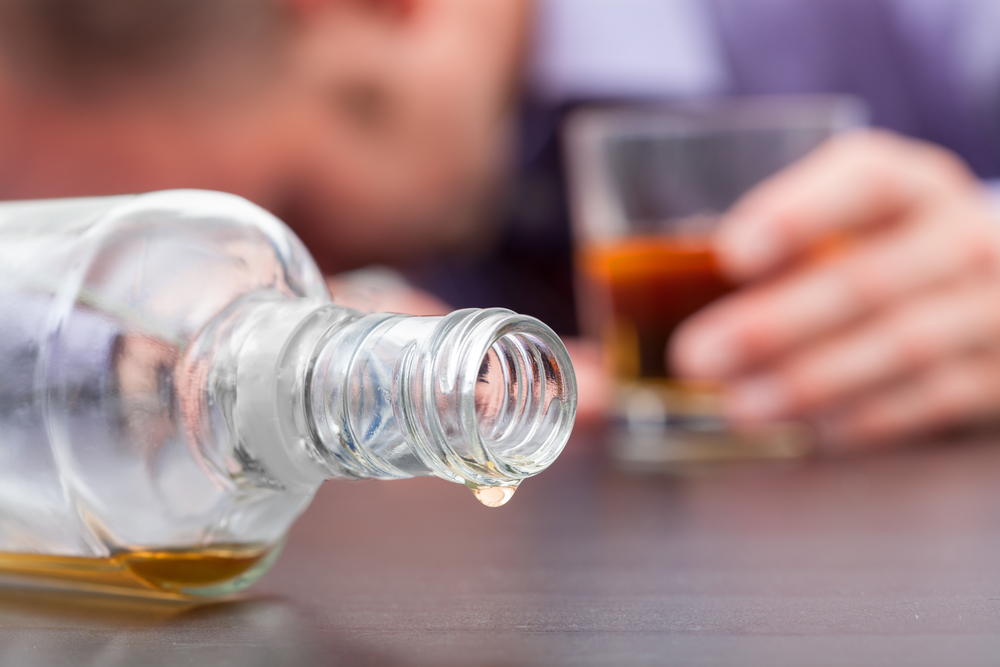Alcohol consumption is a common part of social gatherings and celebrations, but excessive drinking can lead to unpleasant consequences like hangovers and, in more serious cases, alcohol withdrawal. While a hangover may seem like a temporary inconvenience, it can be an early warning sign of problematic drinking habits. A hangover may be a mild sign of a withdrawal, but if you are experiencing withdrawal a hangover will not be the only symptom that manifests.
Understanding the differences between hangovers and alcohol withdrawal is essential, as both conditions highlight the potential risks of alcohol use. This article explores what hangovers are, how they differ from withdrawal, and when these symptoms might signal a deeper issue.
What Is a Hangover?
A hangover is a collection of unpleasant symptoms that occur after consuming excessive amounts of alcohol. Some may wonder “is a hangover withdrawal?”, but they are not the same condition. Common symptoms include headaches, nausea, fatigue, dehydration, dizziness, sensitivity to light or sound, and a general feeling of malaise. These effects arise primarily due to the way alcohol disrupts the body’s normal functioning.
Alcohol is a diuretic, leading to dehydration, which contributes to headaches and dry mouth. It also irritates the stomach lining, causing nausea, and disrupts blood sugar levels, resulting in fatigue and weakness. Additionally, the buildup of byproducts like acetaldehyde, a toxic substance produced when the body processes alcohol, further contributes to the discomfort. Sleep disturbances caused by alcohol can worsen these effects, leaving individuals feeling sluggish and unwell.
What Is Alcohol Withdrawal?
Withdrawal is the physical and psychological symptoms that occur when someone who is dependent on alcohol suddenly stops drinking or significantly reduces their intake. Dependence develops as the body adapts to the presence of alcohol, and its abrupt absence disrupts the central nervous system, which has been chronically suppressed by alcohol’s effects. Common withdrawal symptoms include:
- Anxiety
- Shaking
- Excessive sweating
- Insomnia
- Irritability
- Restlessness
In severe cases, withdrawal can lead to more dangerous symptoms like seizures and hallucinations, a condition known as Delirium Tremens (DTs), which requires immediate medical attention. The severity of withdrawal depends on the duration and intensity of alcohol use, making professional supervision essential for safe detoxification.
Is a Hangover the Same as Withdrawal?
Although hangovers and alcohol withdrawal share some overlapping symptoms, such as headaches, nausea, and fatigue, they are distinct conditions with different causes and contexts. A hangover occurs after drinking stops for a short period, typically following a single episode of excessive alcohol consumption. It results from dehydration, toxic byproducts of alcohol metabolism, and disrupted sleep.
In contrast, alcohol withdrawal occurs in individuals who are dependent on alcohol after prolonged heavy use and involves more severe symptoms. Withdrawal symptoms, such as anxiety, shaking, sweating, insomnia, irritability, seizures, or hallucinations, reflect the body’s struggle to adjust to the absence of alcohol after developing a dependency. Unlike hangovers, withdrawal requires medical attention, especially in severe cases, as it can pose significant health risks.
Signs You May Be Experiencing Alcohol Withdrawal

Recognizing the signs of alcohol withdrawal is crucial, as they may indicate alcohol dependency.
- Feeling Ill When Sober: One key warning sign is feeling unwell or uneasy when not drinking, such as experiencing irritability, restlessness, or anxiety during periods of sobriety.
- Dependency on Alcohol: Another indicator is needing alcohol to function in daily life, whether to feel “normal,” start the day, or cope with stress.
- Physical Symptoms: If attempts to reduce or stop drinking result in severe physical or mental symptoms—such as shaking, sweating, nausea, insomnia, or overwhelming cravings—it could signify a dependency on alcohol.
These symptoms often worsen over time and may escalate to dangerous conditions, like seizures or hallucinations, if untreated. Recognizing these signs early and seeking professional help is essential for recovery.
When Does a Hangover Become a Concern?
While an occasional hangover is often seen as a consequence of overindulgence, frequent hangovers can signal problematic drinking habits. If hangovers become a regular occurrence, it may indicate a pattern of excessive alcohol consumption or an inability to moderate drinking. Over time, repeated heavy drinking can lead to increased tolerance, where more alcohol is needed to achieve the same effects, and the risk of developing dependency grows.
As dependence sets in, the body begins to rely on alcohol to function normally, and hangovers may progress into withdrawal symptoms when alcohol use is reduced or stopped. This shift from occasional discomfort to physical and psychological reliance is a warning sign of alcohol use disorder, which requires professional intervention to prevent further harm.
Can You Treat a Hangover?
Many hangover cures are a myth. It is important to drink water and juice if you’re feeling hungover. Fluids can help alleviate your symptoms. If you are concerned, it’s best to seek medical attention.
You may also prevent a hangover by limiting the amount you drink and drinking alcohol slowly. One drink per hour is the average recommendation to allow your body to process alcohol. However, if you experience frequent hangovers, this may be a sign to stop your alcohol use and seek professional help for alcohol dependency.
Why It’s Important to Seek Professional Help for Alcohol Withdrawal?
Attempting to quit alcohol without professional help can be dangerous, especially for individuals who have been drinking heavily or for a long period. Severe withdrawal symptoms, such as seizures, hallucinations, and Delirium Tremens (DTs), can be life-threatening without medical intervention.
Additionally, the intense cravings and discomfort experienced during withdrawal can increase the risk of relapse, making it difficult to sustain sobriety alone. Professional help ensures that detox is managed in a safe and supportive environment, with medical supervision to address complications and alleviate symptoms.
Beyond detox, professionals provide access to counseling, support groups, and resources that promote long-term recovery and sober living, addressing the physical and psychological aspects of alcohol dependency comprehensively. Seeking professional help is a crucial step toward a safer, healthier path to sobriety.
How Crestview Recovery’s Residential Rehab Can Help?
Located in Portland, Oregon, Crestview Recovery’s residential treatment program provides support for those struggling with substance abuse. Our 90-day program for alcohol dependency includes medically assisted treatment, withdrawal management, and therapy to help address the root causes of addiction.
At Crestview, we promote a holistic approach to recovery—ensuring you receive care that not only helps you become sober, but also addresses factors that may have led to addiction and help you create relapse prevention strategies. Part of this program is our many options for therapy. Crestview Recovery recognizes the need for individualized care, which is why we offer several types of therapy:
Individual therapy provides a safe, one-on-one setting for exploring the root causes of alcohol addiction. It helps individuals identify personal triggers, develop healthier coping mechanisms, and set realistic recovery goals. Therapists can tailor sessions to the unique needs of each person, ensuring targeted and effective support.
Group therapy fosters a sense of community and shared experience among those recovering from alcohol addiction. Participants gain insights from others facing similar challenges, build supportive relationships, and practice social skills in a safe environment. This shared journey reduces isolation and reinforces accountability.
Alcohol addiction affects not just the individual but also their loved ones. Family therapy helps repair strained relationships, improve communication, and create a supportive home environment. By involving family members in the recovery process, therapy addresses the dynamics that may have contributed to or been impacted by addiction.
DBT is particularly effective for individuals struggling with intense emotions and impulsive behaviors that can fuel alcohol use. It teaches skills for managing stress, regulating emotions, and improving interpersonal relationships, reducing the likelihood of relapse.
CBT focuses on identifying and changing negative thought patterns and behaviors associated with alcohol use. It helps individuals recognize triggers, challenge harmful beliefs, and develop practical strategies to maintain sobriety. CBT is a proven method for preventing relapse and building long-term resilience.
Holistic therapy addresses the mind, body, and spirit to promote overall well-being. Practices like yoga, meditation, and art therapy reduce stress, enhance self-awareness, and support emotional healing. By fostering a balanced and healthy lifestyle, holistic approaches complement traditional therapies in recovery.
Many individuals with alcohol addiction have experienced trauma, which may contribute to their substance use. Trauma-informed therapy provides a compassionate approach that prioritizes safety and avoids re-traumatization. It helps individuals process past experiences, rebuild trust, and develop healthier coping mechanisms to prevent alcohol use as a means of escape.
Take the First Step Toward Recovery

Recognizing the signs of alcohol misuse is a powerful step toward reclaiming your health and well-being. If you find yourself struggling with dependency or facing challenges in reducing alcohol use, it’s never too late to seek help. Professional support can make all the difference in overcoming addiction and building a brighter future. At Crestview Recovery, we offer compassionate, evidence-based care tailored to your needs, ensuring a safe and supportive environment for your journey.
Don’t wait—take control of your life today. Contact Crestview Recovery to begin your path to a healthier, alcohol-free life. Your recovery starts with a single step, and we are here to guide you every step of the way.
































